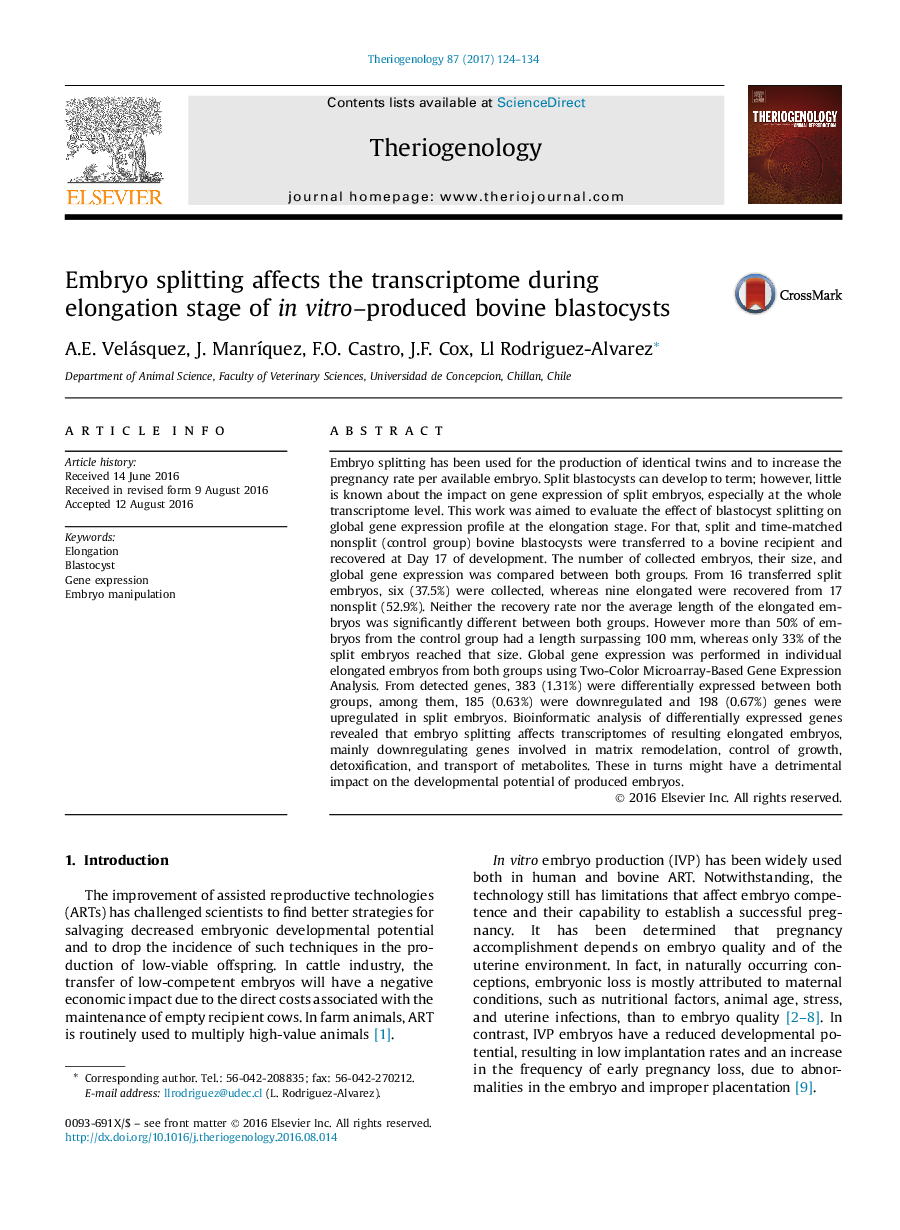| Article ID | Journal | Published Year | Pages | File Type |
|---|---|---|---|---|
| 5523327 | Theriogenology | 2017 | 11 Pages |
Embryo splitting has been used for the production of identical twins and to increase the pregnancy rate per available embryo. Split blastocysts can develop to term; however, little is known about the impact on gene expression of split embryos, especially at the whole transcriptome level. This work was aimed to evaluate the effect of blastocyst splitting on global gene expression profile at the elongation stage. For that, split and time-matched nonsplit (control group) bovine blastocysts were transferred to a bovine recipient and recovered at Day 17 of development. The number of collected embryos, their size, and global gene expression was compared between both groups. From 16 transferred split embryos, six (37.5%) were collected, whereas nine elongated were recovered from 17 nonsplit (52.9%). Neither the recovery rate nor the average length of the elongated embryos was significantly different between both groups. However more than 50% of embryos from the control group had a length surpassing 100Â mm, whereas only 33% of the split embryos reached that size. Global gene expression was performed in individual elongated embryos from both groups using Two-Color Microarray-Based Gene Expression Analysis. From detected genes, 383 (1.31%) were differentially expressed between both groups, among them, 185 (0.63%) were downregulated and 198 (0.67%) genes were upregulated in split embryos. Bioinformatic analysis of differentially expressed genes revealed that embryo splitting affects transcriptomes of resulting elongated embryos, mainly downregulating genes involved in matrix remodelation, control of growth, detoxification, and transport of metabolites. These in turns might have a detrimental impact on the developmental potential of produced embryos.
